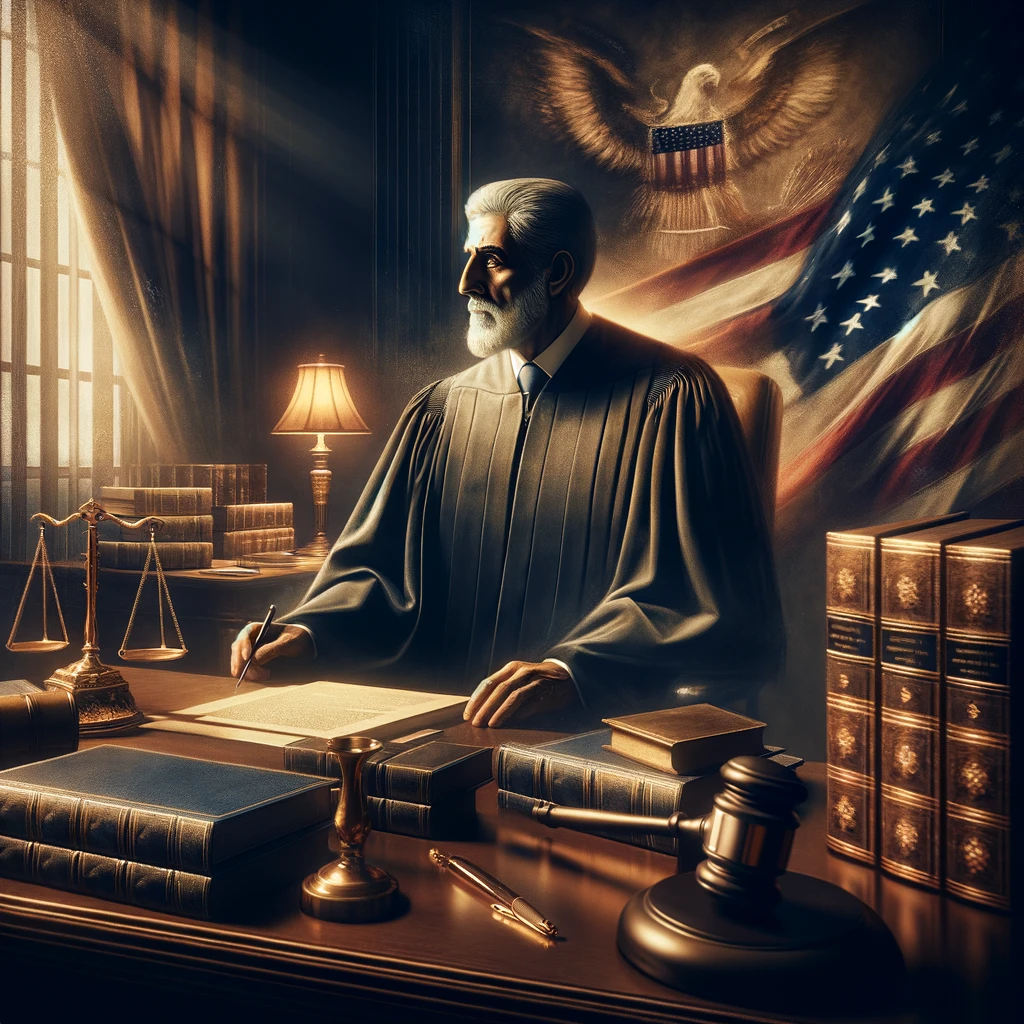Justice Clarence Thomas, appointed to the United States Supreme Court in 1991, has been a pivotal and often controversial figure in American jurisprudence. His tenure on the Court is marked by a steadfast commitment to conservative principles and a significant impact on the nation’s legal landscape.
Early Life and Education: Born in Pin Point, Georgia, in 1948, Clarence Thomas grew up in a modest setting. He attended Holy Cross College and then Yale Law School, where he graduated in 1974. His early life experiences, including growing up in the segregated South and his education in predominantly white institutions, significantly influenced his perspectives and legal philosophy.
Rise to the Supreme Court: Before his Supreme Court appointment, Thomas held various legal and political positions, including Assistant Attorney General in Missouri, a position in the Reagan administration’s Department of Education, and Chairman of the Equal Employment Opportunity Commission (EEOC). In 1990, President George H.W. Bush appointed him to the United States Court of Appeals for the District of Columbia Circuit.
Supreme Court Nomination and Confirmation: Thomas’s nomination to the Supreme Court by President Bush in 1991 was met with intense scrutiny and controversy. His confirmation hearings were particularly contentious, marked by allegations of sexual harassment made by law professor Anita Hill, a former colleague. Thomas vehemently denied the allegations, and after a highly polarized and public debate, he was confirmed to the Court by a narrow margin.
Judicial Philosophy: On the Supreme Court, Justice Thomas is known for his conservative and originalist approach to the Constitution. He advocates for a strict interpretation of the Constitution’s text as it was understood at the time of its writing. This approach has led him to take conservative stances on issues like affirmative action, gun rights, and campaign finance.
Impact and Decisions: Throughout his tenure, Thomas’s opinions and dissents have significantly influenced the Court’s direction. He often espouses views that emphasize individual rights and limitations on federal government power. His influence extends beyond his judicial decisions, as his legal philosophy has inspired a generation of conservative legal thinkers.
Controversies and Criticism: Thomas’s tenure on the Court has not been without controversy. Critics argue that his judicial philosophy undermines civil rights advances and fails to account for the evolving nature of law and society. His role in landmark decisions, such as those involving voting rights and campaign finance, has often placed him at the center of public debate.
Legacy and Influence: Despite the controversies, Clarence Thomas remains a significant figure in the American legal system. His interpretation of the Constitution and his influence on conservative legal thought continue to shape discussions on the role and power of the Supreme Court in American life.
In conclusion, Justice Clarence Thomas’s career on the Supreme Court is a testament to his enduring impact on American jurisprudence. His legal philosophy, decisions, and the controversies surrounding him have made him one of the most influential and debated figures in the Court’s history.
